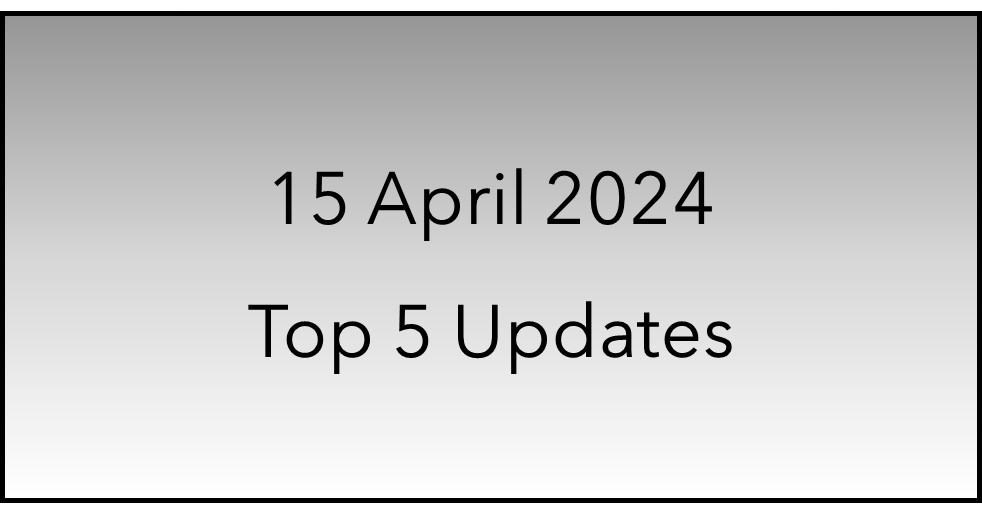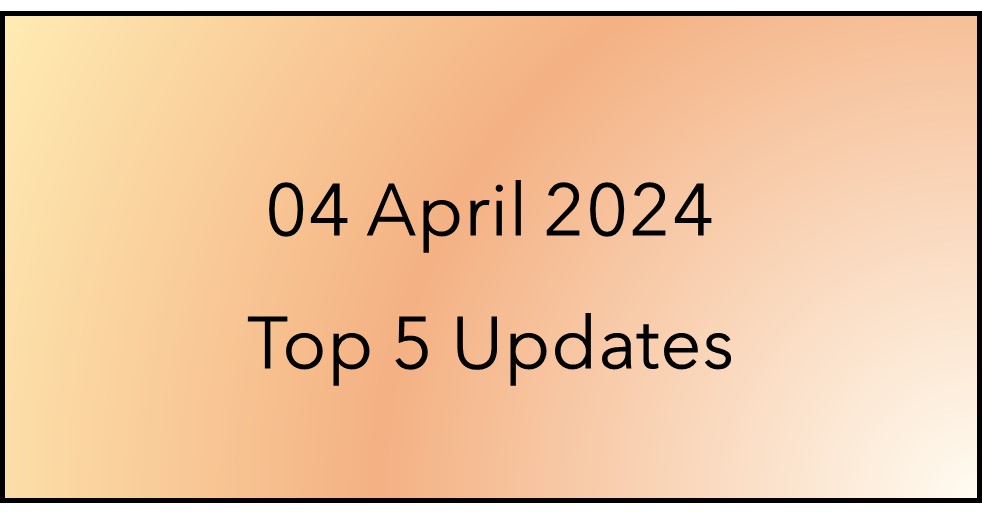Dear Reader, We are happy to share the most interesting legal and policy updates concerning health industry that we read today. We hope you enjoy reading it.
Guidance for making regulatory applications for biological and biotechnology products such vaccines may be revised soon
India’s central drug regulator, Central Drugs Standards Control Organization (CDSCO), has issued draft of revised guidance which seeks to align the online regulatory application process with applicable law i.e. The New Drugs and Clinical Trial Rules, 2019. Recently, the CDSCO has started accepting regulatory applications through NSWS portal. All stakeholders have time until April 25, 2024 to submit their suggestions/comments.
Source: bit.ly/3JlwIrU
Indian Pharma industry has sought clarity from Government on ethics of sponsoring foreign trips of doctors to attend scientific and training programs outside India.
An industry group representing multinational pharma companies has reportedly approached the Indian Government for seeking clarity on the issue of Indian doctors being sponsored by pharma companies for attending medical events outside India. A recent guidance issued by Department of Pharmaceuticals called Uniform Code for Pharmaceutical Marketing Practices, 2024 (UCPMP) has stated that pharma companies will not sponsor travel and hospitality of Doctors unless they are speaking in medical events.
Source: bit.ly/3JklqnG
New Guidance document for generation and transfer of EPR Certificate under E-Waste Management Rules issued
India’s Central Pollution Control Board has issued a guidance document which explains steps to be taken by recyclers, recycling facilities under the E-Waste (Management) Rules, 2022 for generation of EPR Certificate. It has been clarified that EPR Certificate will have validity of 2 years. All importers and manufacturers of electric and electronic equipment including medical devices are required to procure EPR Certificates from registered recyclers to discharge their respective Extended Producer Responsibility obligations.
Source: bit.ly/44242Oc
Nestle wins class action suit filed by Government in the infamous Maggie Noodles case
The National Consumer Disputes Redressal Commission (NCDRC) has dismissed the Indian government’s 2015 complaint against Nestlé India over the safety of its Maggi noodle products. The Indian government had accused Nestlé of engaging in unfair trade practices by adding a ‘No added MSG’ label and claimed that the instant noodle product contained impermissible lead levels. However, NCDRC has noted in its order that the lead content in the tested instant noodle products was within permissible limits and that the Food Regulator itself had permitted brands to carry No Added MSG label if MSG was not deliberately added by manufacturer during the manufacturing process.
Source: bit.ly/3vIR1MJ
US based telehealth companies penalised for selling personal information
The United States Federal Trade Commission has reportedly taken action against an alcohol addiction telehealth company, for sharing health information to third parties including some major social media companies and search engines. A proposed order to settle the allegations will prevent the company from disclosing sensitive data for advertising purposes, among other penalties.
Source: bit.ly/43ZfoCi





